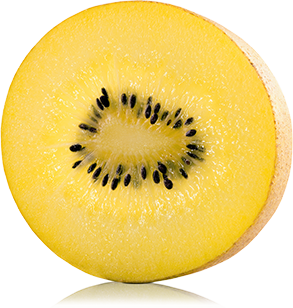How the balance within our digestive system affects our lives

The human body plays host to around a hundred trillion microbes, mostly bacteria, but also fungi, viruses and other micro-organisms.1 The majority of these live as a complex community inside our digestive systems. Known as our ‘gut microbiome’, this “organ” is essential for absorbing nutrients and the effective operation of our immune systems.2
As with any community, the gut microbiome works best when it has a balanced population, with both good numbers (abundance) of beneficial bacteria and a good range of beneficial bacteria (diversity). This diversity provides us with a healthy gut environment which has good levels of beneficial short chain fatty acids being produced and a strong intestinal barrier.
Many of the bacteria within the community are beneficial, but others can become harmful in large numbers. Lifestyle factors like what we eat, how much sleep we get, and our stress levels can impact gut microbiome balance. The good bacteria may die off and the harmful bacteria thrive.

This can result in a “leaky gut”. At the very least someone with a leaky gut might feel ‘yukky’ or off-colour, because an unbalanced gut microbiome is affecting their everyday wellbeing. At worst, they might be truly unwell.
Disturbances to the overall balance of the gut microbiome and the absence of key beneficial bacteria have been linked to a whole range of health problems, including gastrointestinal conditions e.g.
– irritable bowel syndrome (IBS)
– colorectal cancer (CRC)),
– metabolic diseases (e.g. obesity, diabetes),
– neurological conditions (e.g. depression, autism spectrum disorder)
– autoimmune diseases (e.g. inflammatory bowel disease (IBD), multiple sclerosis).3
F. prau is a hero within the gut microbiome
There are heroes within the gut microbiome, including the well-known Lactobacillus and Bifidobacterium. Only recently, an intestinal bacterium called Faecalibacterium prausnitzii (F. prau) was found to be very important for gut flora balance. F. prau has numerous health benefits, including:
– Having anti-inflammatory action,
– contributing to homeostasis,
– supporting the immune system,
– affecting mucus production
– improving gut permeability (reducing “leaky gut”).
It is also a major butyrate producer – butyrate is an essential short-chain fatty acid which has a range of health benefits and functions in the body.
F. prau is one of the most abundant bacteria in the human gut ecosystem. Low numbers have been associated with:
– Gastrointestinal disorders (IBD, including ulcerative colitis and Crohn’s disease, IBS, CRC),
– Metabolic conditions (type 2 diabetes, non-alcoholic fatty liver disease),
– Nervous system diseases (Alzheimer’s, Parkinson’s, major depressive disorder, bipolar disorder, multiple sclerosis),
– Skin disease (atopic dermatitis)4 and respiratory tract infections (including Covid-195,6 and flu (H1N1)7).



“Butyrate, which is produced by F. prau as it feeds upon dietary fibre like kiwifruit pectin, plays a major role in gut physiology and our health. “
– EMMA GRAHAM, SCIENTIST
Improve the gut microbiome and F.prau levels with livaux
Given the importance of F. prau in the gut microbiome, consumers may look for a F. prau probiotic to supplement their internal populations of F. prau.
However, increasing diminished F. prau populations isn’t that easy. As an anaerobe, oxygen kills F. prau, so it can’t easily be packaged up as a probiotic supplement. The only effective strategy for improving F. prau levels is to help the existing F. prau population to thrive.
That’s where Livaux® can help. Derived from non-GMO New Zealand gold kiwifruit grown in New Zealand, Livaux® is a patented, freeze-dried powder concentrate that can be ingested to help native F. prau communities to flourish.
Two clinical studies have shown that F. prau levels significantly increase after Livaux® consumption8,9. Study participants also noted an improvement in their quality of life and symptoms following a course of Livaux®.

Relative abundance of F. prau before (pre) and after (post) consumption of Livaux in functionally constipated people8

Relative abundance of F. prau before (pre) and after (post) consumption of Livaux in healthy people with occasional constipation9
Livaux® – the 8-in-1 precision prebiotic
Livaux is a multifunctional, multifaceted prebiotic that stands head and shoulders above other prebiotics with several key differentiating factors:



(600 MG)






How does Livaux work?

Livaux contains potent gold kiwifruit bioactives which work together to support digestive health, a diverse and healthy gut microbiome, and the immune system. These bioactives include:



What is dietary fibre and what does it do?
The kiwifruit dietary fibre in Livaux is a mixture of insoluble fibre (hemicellulose and cellulose) and soluble fibre (pectin). When eaten, dietary fibre isn’t digested in the upper gastrointestinal tract like other carbohydrates. Instead, it passes through to the colon/large intestine intact. Here, the insoluble fibre adds bulk to stool, absorbing water and helping to speed up the passage of waste and reduce constipation; the soluble fibre forms a gel-like material with water and is fermentable by the bacteria in the colon.
Kiwifruit pectin is one of the most complex fibres in nature
Kiwifruit pectin is soluble and has a highly complex structure. This complexity means that it is slowly fermented by the good bacteria in the gut, including F.prau which has a preference for the type of pectin found in Livaux. As the Livaux pectin is slowly fermented throughout the length of the colon, it is broken down without excessive gas production, which can occur with other prebiotics, so it is well-tolerated and can help to reduce bloating and discomfort.


What are the polyphenols in Livaux and what do they do?
Polyphenols are a group of compounds found in plants that are beneficial to humans when consumed. Livaux and gold kiwifruit have high levels of polyphenols including cinnamic acids (E-caffeoyl-3-glucoside and neochlorogenic acid) and flavanols (procyanidin B2 and epicatechin).
Polyphenols have been shown to positively influence human health. They are potent antioxidants, helping to mop up damaging reactive oxygen species, and may also improve lipid profiles, blood pressure, insulin resistance, and systemic inflammation10. The health benefits of polyphenols may be in part due to a bidirectional interaction with the gut microbiota – the polyphenols can modulate the microbiome through prebiotic and antimicrobial effects and the gut bacteria can break down polyphenols to release beneficial metabolites11.
What does vitamin C and E do?
Vitamins C and E are well-known antioxidants that are present in Livaux. Like polyphenols, they mop up reactive oxygen species, supporting our immune system and reducing inflammation. Additionally, vitamin C and E are also involved in various bodily functions:
The antioxidant effects of the vitamins and polyphenols in Livaux may also provide a favourable environment for the anaerobic F. prau to thrive.


Livaux gold kiwifruit powder significantly increases the abundance of Faecalibacterium prausnitzii.
Q: Why is there so much interest in the scientific community for F. prau?
A: As science has been able to delve into the microbiome that inhabits our gut with new advances, it has become clear that some microbes are present more often in health than others, while some microbes are more commonly found in disease. F. prau has consistently been found to be present in higher concentrations in health.
Q: What diseases are associated with low levels of F. prau?
A: Low levels of F. prau have been found in people with inflammatory bowel disease (Crohn’s disease and ulcerative colitis), asthma, obesity and even depression. However, it is not clear whether these associations are cause or effect.
Q: Can you take a probiotic supplement containing F. prau?
A: F. prau is an obligate anaerobe, therefore a probiotic preparation is unlikely to be effective as the preparation may not allow the bacterium to survive. Increasing the concentration of F. prau using a prebiotic just makes more scientific sense.
Q: How can you boost your natural levels of F. prau then, if you can’t supplement with a probiotic?
A: In theory, increasing F. prau could be achieved using a probiotic supplement including F. prau although it can be technically difficult to achieve this. An alternative that is more likely to succeed is to provide the microbiome with foods that favour the growth of F. prau.
Q: What are the potential beneficial effects of boosting your F. prau levels in the gut?
Higher levels of F. prau are found in healthy individuals when compared to people with a range of illnesses. While this does not mean that F. prau protects people from these illnesses, it would seem that achieving higher levels of F. prau in the microbiome is not a bad aim.
1. Wang, B., Yao, M., Lv, L., Ling, Z., & Li, L. (2017). The human microbiota in health and disease. Engineering, 3(1), 71-82.
2. Sekirov, I., Russell, S. L., Antunes, L. C. M., & Finlay, B. B. (2010). Gut microbiota in health and disease. Physiological reviews.
3. Guinane, C. M., & Cotter, P. D. (2013). Role of the gut microbiota in health and chronic gastrointestinal disease: understanding a hidden metabolic organ. Therapeutic advances in gastroenterology, 6(4), 295-308.
4. Leylabadlo, H. E., Ghotaslou, R., Feizabadi, M. M., Farajnia, S., Moaddab, S. Y., Ganbarov, K., … & Kafil, H. S. (2020). The critical role of Faecalibacterium prausnitzii in human health: An overview. Microbial pathogenesis, 149, 104344.
5. Zuo, T., Zhang, F., Lui, G. C., Yeoh, Y. K., Li, A. Y., Zhan, H., … & Ng, S. C. (2020). Alterations in gut microbiota of patients with COVID-19 during time of hospitalization. Gastroenterology, 159(3), 944-955.
6. Yeoh, Y. K., Zuo, T., Lui, G. C. Y., Zhang, F., Liu, Q., Li, A. Y., … & Ng, S. C. (2021). Gut microbiota composition reflects disease severity and dysfunctional immune responses in patients with COVID-19. Gut, 70(4), 698-706.
7. Zheng, B., Huang, C., Guo, F., Lu, H., Gao, H., Zhang, H., … & Wu, Z. (2020). Alterations of the Gut Microbiota in Patients with COVID-19 or H1N1 Influenza.
8. Blatchford, P., Stoklosinski, H., Eady, S., Wallace, A., Butts, C., Gearry, R., … & Ansell, J. (2017). Consumption of kiwifruit capsules increases Faecalibacterium prausnitzii abundance in functionally constipated individuals: a randomised controlled human trial. Journal of nutritional science, 6.
9. KGK Science, publication pending.
10. Rana, A., Samtiya, M., Dhewa, T., Mishra, V., & Aluko, R. E. (2022). Health benefits of polyphenols: A concise review. Journal of Food Biochemistry, e14264.
11. Cardona, F., Andrés-Lacueva, C., Tulipani, S., Tinahones, F. J., & Queipo-Ortuño, M. I. (2013). Benefits of polyphenols on gut microbiota and implications in human health. The Journal of nutritional biochemistry, 24(8), 1415-1422.





